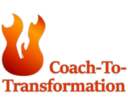

Coaching and Feedback Session
- Feb 12th 2019
Recently a so called “dreaded” 360 degree feedback session was conducted for me and during the session few development objectives were discussed to make me a rounded personality or a better individual for the personal growth and organization success. Overall environment and tone of the conversation was extremely conducive and open for me to come out positively from the session. As I was exploring topics for peer coaching conversation, two points stuck to me during coaching conversation. Firstly, do I need to be “round” or perform to potential, secondly what is development feedback all about, is my organization expecting me to work on my weakness and not focus on above average attributes or strength. During the exploration journey on this topic, it dawned on me that development feedback were my strong attributes which are being recognized and have become so strong that they have turned into development feedback.
Feedback sessions are often considered as “deficit based thinking” which focuses on what’s broken, overcoming weakness, reliant on expert knowledge etc. as against “strength based thinking” which focuses on what’s working, emphasize possibility, reliant on personal strength etc. At high level both of them are advocating “a call for action” to “strive a new normal”. Development feedback appears to be “deficit based thinking”, however in reality these feedbacks are on how to flex your strength based on environment. There is a possibility that if these sessions are conducted with positive intent along with environment, a feedback session can catapult into “strength based thinking” discussion. “New normal” achieved based on strength based thinking is internally driven and reliant on personal strength hence sustainable.
Strength based thinking has possibly dovetailed into or analogous to “appreciative inquiry” methodology, Copperrider et.al. Appreciative inquiry methodology has been proven to provide sustainable positive outcome both at organization level and individual level. Appreciative Inquiry model, has four primary elements surrounding positive core or affirmative topic choice, discovery /appreciating (what gives life or the best of what is), dream /envisioning results (what might be or what is the world calling for), design /co-constructing (what should be or the ideal) and destiny /sustaining (how to empower, learn and adjust/improve). Appreciative inquiry methodology works because 1) People like talking about what is best for them based on past experience and actively engage in discussions that focus on what works 2) When sharing positive stories, people gain confidence in their ability to deliver and 3) Generating a positive image of the future influences our behavior in the present and that acts to bring anticipated positive results. There are lot of similarity between appreciative inquiry and coaching as both focuses on positive core, performing to potential, co-creating action plan based on individual strength/thought process to bring positive results for future etc. ICF coaching competencies naturally allows a leader to use appreciative inquiry or strength based thinking in discussions.
For me, who has embarked on the journey to become ICF coach, this development feedback, strength based coaching and appreciative inquiry provides an overall perspective to flex above average attributes based on situation as well as recognize blind spots. This also helped me to look at the developmental feedback as a tool to reach a “new normal” while capitalizing my strength. While applying the same learning during discussions with team members, a big shift was noticed in the environment and outlook towards action.
A leader, who is also a coach, can co-construct internally driven sustainable changes and development feedback session would not be considered as “dreaded” anymore for self and others as well.


Rajat Garg
Rajat is a Master Certified Coach (MCC) with over 18 years of industry experience and over 2500 hours of coaching experience, helping people and organizations attain maximum effectiveness. His background includes working with CXOs, senior managers, managers and board of directors of small private companies to multi-billion dollar publicly traded organizations.









0